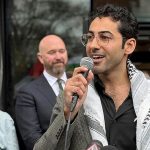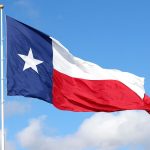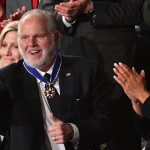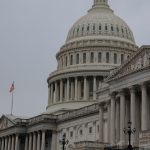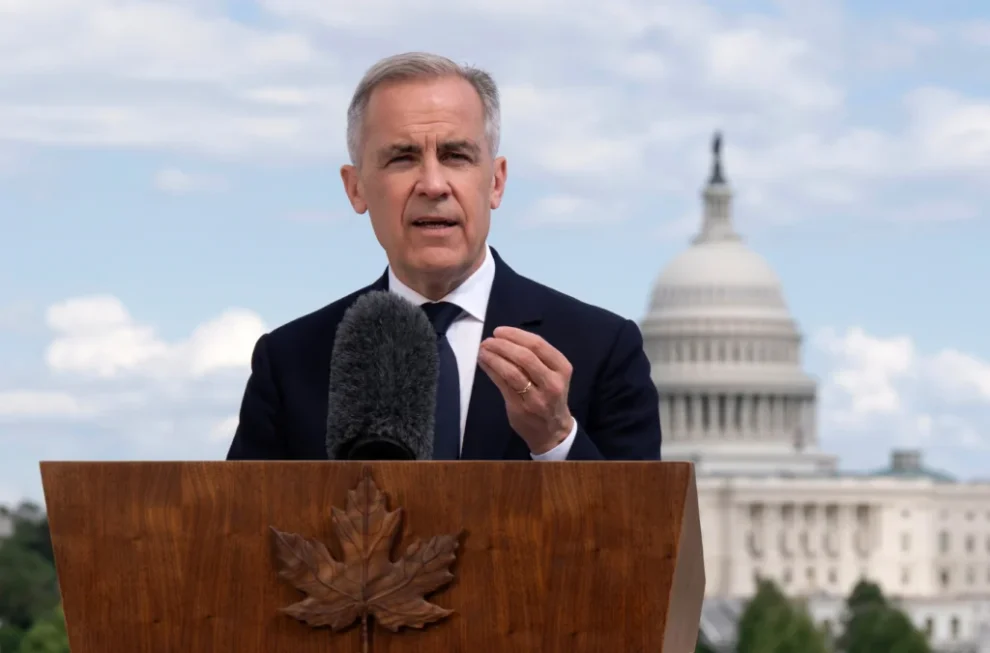New Canadian Prime Minister Mark Carney has asked President Donald Trump not to call Canada the 51st state of the United States as he did under Carney’s predecessor, Justin Trudeau.
During a press conference on the roof of the Canadian Embassy on Pennsylvania Avenue, between the White House and Congress, Carney said he made the ask of Trump earlier Tuesday during what he described as “wide-ranging” and “very constructive” discussions in the Oval Office and a working lunch, with more conversations planned for the “future” before the pair meet again during the G-7 leaders summit in Kananaskis, Canada.
CARNEY POLITELY TELLS TRUMP CANADA’S ‘NOT FOR SALE’ — TRUMP RETORTS ‘NEVER SAY NEVER’
Trump himself addressed the question later Tuesday during a FIFA Task Force Meeting in the White House’s East Room.
“As far as calling him Gov. Carney — no, I haven’t done that yet, and maybe I won’t. I did have a lot of fun with Trudeau, but I think this is a big step up,” Trump said. “It’s a good step up for Canada.”
Carney also quipped during his press conference that he appreciated that reporters “couldn’t tell what was going through my mind” as Trump tried to tell Canadians they would be tax and security advantages to becoming part of the U.S., in addition to remaining adamant that the U.S. did minimal business with Canada.
“The president has made known his wish about that issue for some time,” he said. “I’ve been careful always to distinguish between wish and reality. I was clear there in the Oval Office, as I’ve been clear throughout on behalf of Canadians, that this is never going to happen. Canada is not for sale. It never will be for sale. Some things, as I said in the room, some things are never for sale. And he agreed with that.”
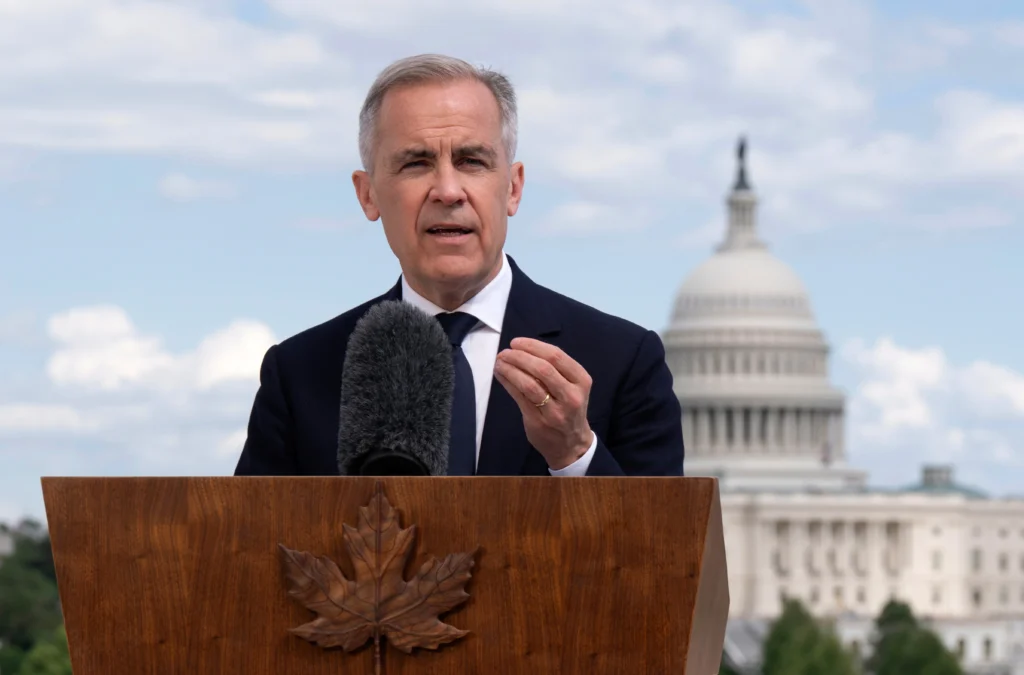
Carney told reporters he had underscored to Trump that Canada and the U.S. “are stronger when we work together,” expressing optimism that the president appeared “willing to have that negotiation.”
“We can get a better deal for our workers, we can create more opportunities for our businesses, we can build stronger economies across North America when we work together, and really today marked… the beginning of a process of the United States and Canada redefining that relationship of working together,” he said.
Only last week, during his victory speech, Carney described a U.S.-Canadian relationship “based on deepening integration of our economies and tight security and military cooperation” as being “over.”
“The question is, how we will cooperate in the future, how we can build an economic and security relationship built on mutual respect, built on common interests, and that delivers transformational benefits to our economies,” he said on Tuesday. “Now, while that’s going on, in Canada, we will focus on what we can control.”
The prime minister particularly referred to reinforcing “our strength at home,” including national security, border security, and security in the Arctic, as well as an economy that can withstand shocks.
“We are masters in our own home and we can give ourselves far more than any foreign government can ever take away,” he said. “So now is the time to build, and based on the discussion today, to build at home and to build with our partners abroad, including the United States.”
For Carney, Trump’s improved “posture” toward Canada and an emphasis on “looking to find solutions, as opposed to laying down terms,” alongside is “a sign of a … healthy relationship.”
“We have more, a lot more work to do,” he said. “I’m not trying to suggest at any respect that we can have one meeting and everything’s changed, but now we are engaged, and very fully engaged.”
During their Oval Office meeting, Trump seemed to indicate that he would not change his mind regarding auto tariffs on Canada, insisting instead that the U.S. should invest in its domestic industry.
“The auto industry as a whole is of the view that Canada, Canadian auto workers, Canadian auto companies, Canadian parts companies, Canadian steel, Canadian aluminum, all play an important role in enhancing the competitiveness of American auto companies,” Carney said during his press conference. “So we will continue to press that case and look for an arrangement that takes full advantage of it for the benefit of the United States, but of course, from our perspective, very much for the benefit of Canada.”
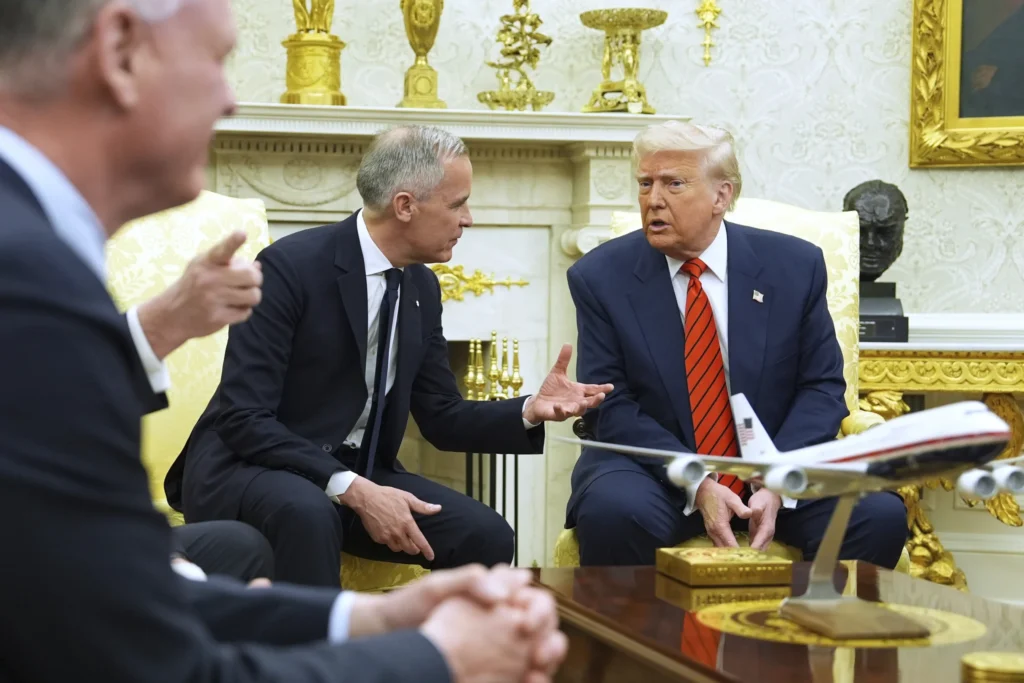
Earlier during that Oval Office meeting, Trump told Carney Canadians would receive a tax cut and free military protection should Canada accede to the U.S., in what would be “a wonderful marriage.”
LIST: THE EXECUTIVE ORDERS, ACTIONS, AND PROCLAMATIONS TRUMP HAS MADE AS PRESIDENT
“Well, if I may, as you know, from real estate, there are some places that are never for sale,” Carney said. “Having met with the owners of Canada over the course of the campaign last several months, it’s not for sale.”
“Never say never,” the president replied.


